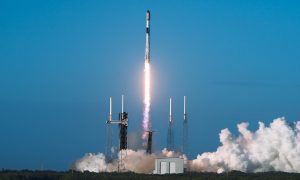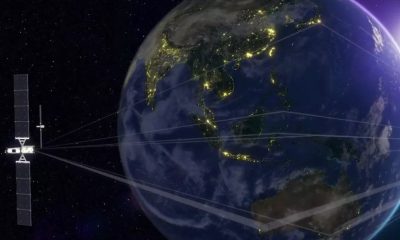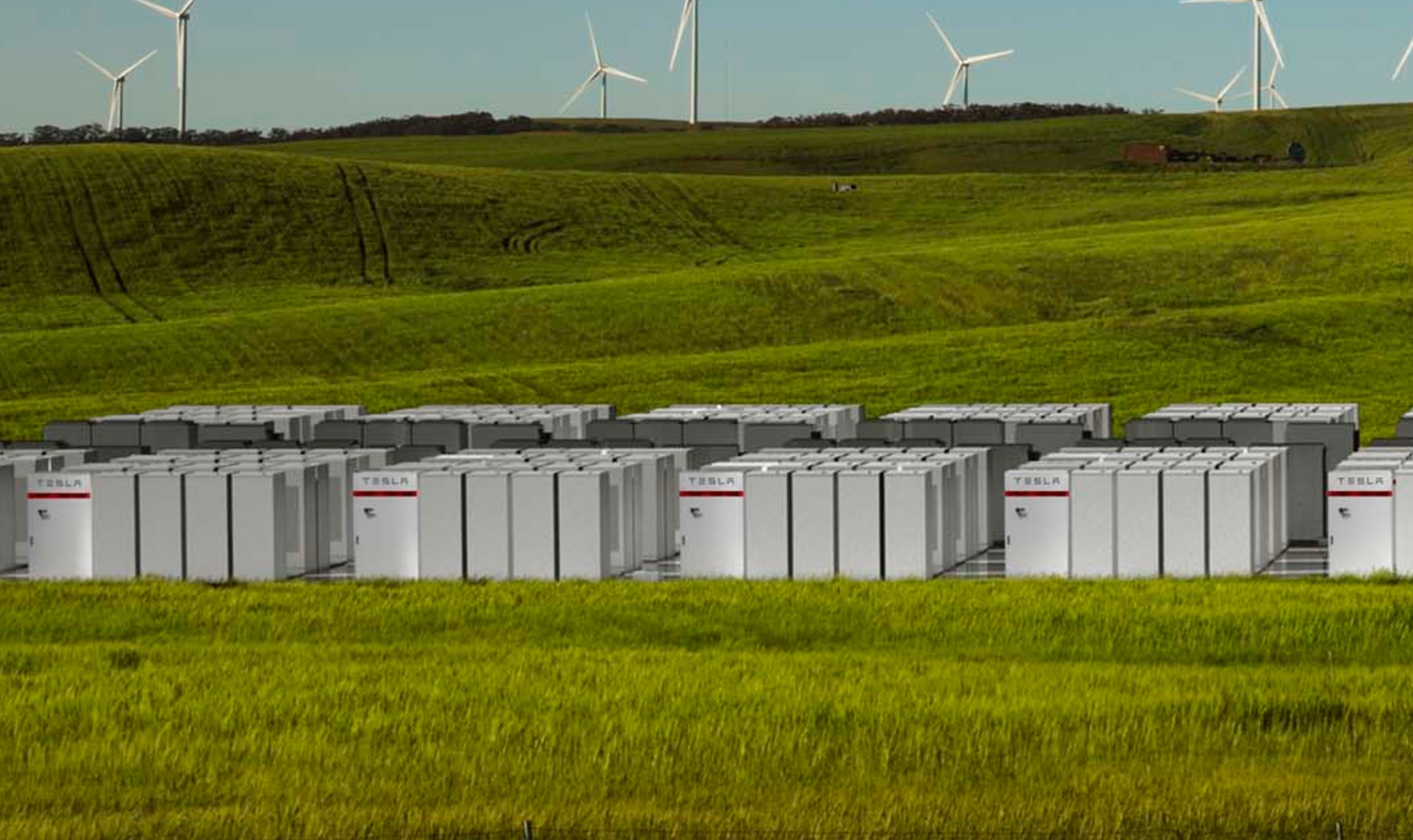

Energy
Tesla batteries could serve as back up for Massachusetts wind farm
Tesla batteries could be used as energy storage for a wind farm off the coast of Massachusetts.
Deepwater Wind LLC is looking to partner with Tesla for the 144-megawatt project, as reported by Bloomberg. The company will bid with the state of Massachusetts to build offshore wind turbines that would provide clean energy during peak hours.
The facility would help supplement the power grid by charging up late at night and delivering power during high volume times, according to Deepwater Chief Executive Officer Jeff Grybowski.
National Grid Plc, Unitil Corp. and Eversource Energy — three Massachusetts utility companies — are requesting $9.45 million of clean energy and have opened bidding from solar, hydroelectric and wind companies, as well as other forms of clean energy.
The power companies need supplemental power mainly during winter evenings.
“Those hours are very valuable to the grid,” said Grybowski. “The battery will ensure that we can do that.”
A decision won’t be made until December, and bids are expected to be made public sometime this week.
For Tesla, this project falls directly in line with other Powerpack outfits around the world. The company already has a massive battery operation underway in Australia, and its massive solar plant in Hawaii was created to serve a similar function.
The Massachusetts project, should Tesla and Deep Water Wind win the bid, would only require a 40 MWh storage system. This storage capability would be smaller than the 52 MWh system Tesla has set up on Kauai and the 100 MWh system that will be installed in southern Australia.
Deepwater Wind issued the following press release:
Deepwater Wind Proposing World’s Largest Offshore Wind, Energy Storage Combination
Revolution Wind Farm Bid into Massachusetts Clean Energy RFP
New Bedford, Mass. – July 31, 2017 – Deepwater Wind today unveiled plans for its newest project off the American coast: Revolution Wind, a utility-scale offshore wind farm paired with an energy storage system.
“Revolution Wind will be the largest combined offshore wind and energy storage project in the world,” said Deepwater Wind Chief Executive Officer Jeffrey Grybowski. “People may be surprised by just how affordable and reliable this clean energy combo will be. Offshore wind is mainstream and it is coming to the U.S. in a big way.”
Deepwater Wind is proposing the 144-megawatt Revolution Wind farm – paired with a 40 megawatt-hour battery storage system provided by Tesla – in response to the Commonwealth’s request for proposals for new sources of clean energy in Section 83D of the Act to Promote Energy Diversity. Deepwater Wind also provided alternative bids for a larger 288 MW version of Revolution Wind and a smaller 96 MW version.
“Revolution Wind is flexible and scalable. That’s a serious advantage of offshore wind – we can build to the exact size utilities need,” Grybowski said. “We can build a larger project if other New England states want to participate now or we can start smaller to fit into the region’s near-term energy gaps. And our pricing at any size will be very competitive with the alternatives.”
Deepwater Wind also announced that it will be the first offshore wind company to base construction and operations in the City of New Bedford, Mass. The company will locate final turbine assembly and staging operations at the New Bedford Marine Commerce Terminal. In addition, Revolution Wind’s long-term operations and maintenance center will be in the City. Together, this project will create hundreds of local jobs in the Commonwealth.
Revolution Wind’s offshore wind-battery storage pairing will allow the Commonwealth to meet two policy goals. First, by reliably delivering clean energy – backed up with energy storage – during the times when the grid needs it most, Revolution Wind will help to defer the need to construct costly new peaking generating facilities and controversial transmission lines.
Second, Revolution Wind will advance offshore wind development in Massachusetts by providing an avenue to launch the new industry with an initial smaller-scale project, and phase in larger projects in close succession. This way, the Commonwealth’s ratepayers will benefit from increased competition and declining costs, and the regional supply chain will steadily mature.
At 144 megawatts, Revolution Wind could be built in a single construction season, and developed more cost-effectively, and with considerably less risk, than a larger project.
Deepwater Wind will build Revolution Wind in the company’s federal lease site off the coast of Massachusetts. The site is located 30 miles from the mainland and about 12 miles south of Martha’s Vineyard. The wind farm will be adjacent to Deepwater Wind’s South Fork Wind Farm, a 90 MW project serving Long Island. Fully-built, the lease site has the potential to host 2 gigawatts of offshore wind energy.
If approved, local construction work on Revolution Wind would begin in 2022, with the project in operations in 2023. Survey work is already underway at Deepwater Wind’s lease area.
Deepwater Wind also intends to submit an offshore wind proposal under Massachusetts’ separate 83C offshore wind RFP; those bids are due in December 2018.
About Deepwater Wind
Deepwater Wind is America’s leading offshore wind developer and the only company operating an offshore wind farm in the United States. The company’s 30MW Block Island Wind Farm in Rhode Island began commercial operations in December 2016. The company is also in the early stages of development of its South Fork Wind Farm – a 90 MW project scheduled to begin serving Long Island in 2022 – as well as the Skipjack Wind Farm – a 120 MW project on schedule to begin serving Maryland in late 2022. Visit www.dwwind.com for more info.
Energy
Tesla Lathrop Megafactory celebrates massive Megapack battery milestone
The Tesla Megapack is the backbone of Tesla Energy’s battery deployments.
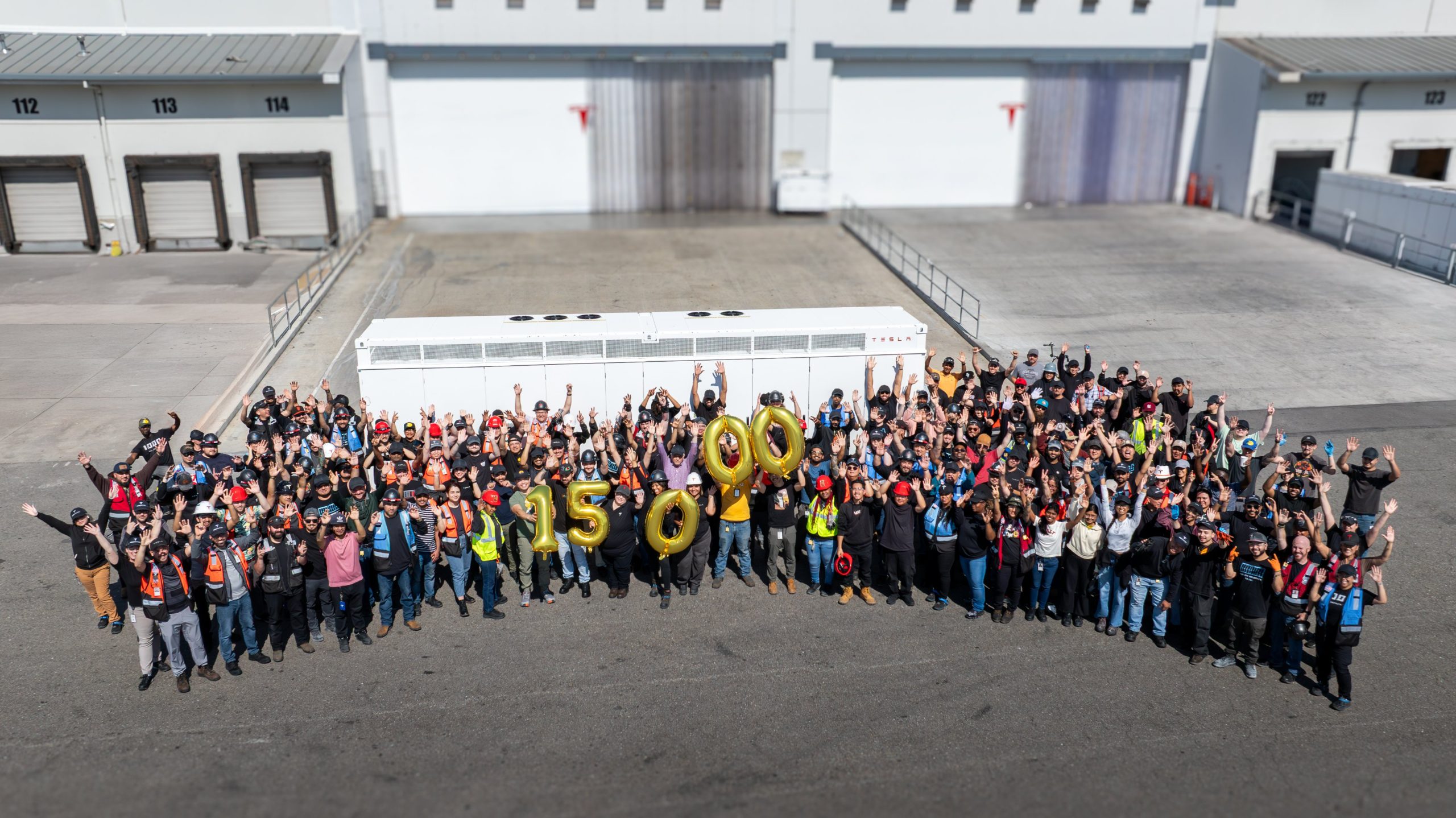
The Tesla Lathrop Megafactory recently achieved a new milestone. As per the official Tesla Megapack account on X, the Lathrop Megafactory has produced its 15,000th Megapack 2 XL battery.
15,000 Megapack Batteries
Tesla celebrated the milestone with a photo of the Lathrop Megafactory team posing with a freshly produced Megapack battery. To commemorate the event, the team held balloons that spelled out “15,000” as they posed for the photo.
The Tesla Megapack is the backbone of Tesla Energy’s battery deployments. Designed for grid-scale applications, each Megapack offers 3.9 MWh of energy and 1.9 MW of power. The battery is extremely scalable, making it perfect for massive energy storage projects.
More Megafactories
The Lathrop Megafactory is Tesla’s first dedicated facility for its flagship battery storage system. It currently stands as the largest utility-scale battery factory in North America. The facility is capable of producing 10,000 Megapack batteries every year, equal to 40 GWh of clean energy storage.
Thanks to the success of the Megapack, Tesla has expanded its energy business by building and launching the Shanghai Megafactory, which is also expected to produce 40 GWh of energy storage per year. The ramp of the Shanghai Megafactory is quite impressive, with Tesla noting in its Q1 2025 Update Letter that the Shanghai Megafactory managed to produce over 100 Megapack batteries in the first quarter alone.
Tesla Energy’s Potential
During the first quarter earnings call, CEO Elon Musk stated that the Megapack is extremely valuable to the energy industry.
“The Megapack enables utility companies to output far more total energy than would otherwise be the case… This is a massive unlock on total energy output of any given grid over the course of a year. And utility companies are beginning to realize this and are buying in our Megapacks at scale,” Musk said.
Energy
Tesla Megapacks powers the xAI Colossus supercomputer
Tesla Megapacks step in to stabilize xAI’s Colossus supercomputer, replacing natural gas turbines. Musk’s ventures keep intertwining.
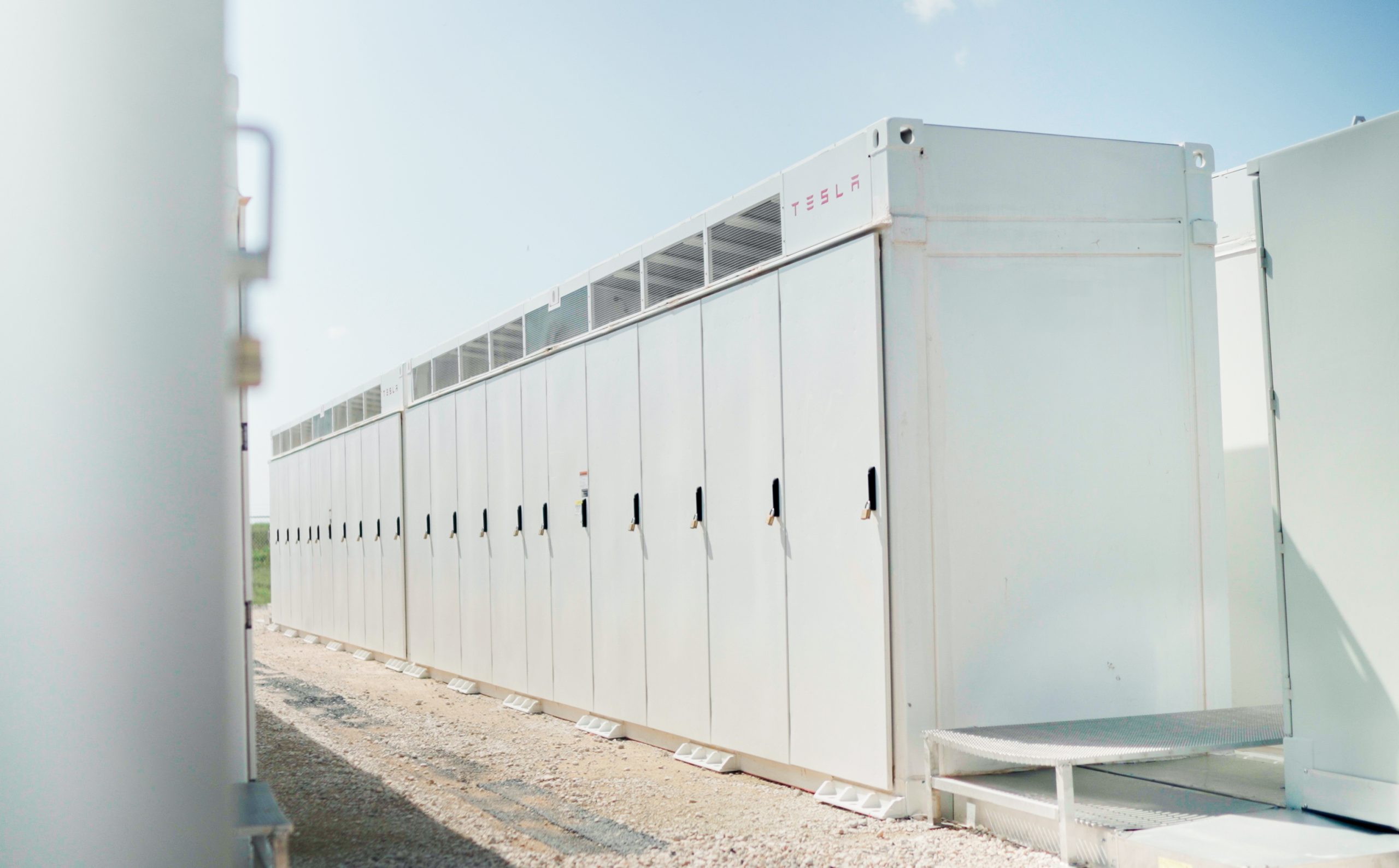
Tesla Megapack batteries will power the xAI Colossus supercomputer in Memphis to ensure power stability. The collaboration between Tesla and xAI highlights the synergy among Elon Musk’s ventures.
The artificial intelligence startup has integrated Tesla Megapacks to manage outages and demand surges, bolstering the facility’s reliability. The Greater Memphis Chamber announced that Colossus, recently connected to a new 150-megawatt electric substation, is completing its first construction phase. This transition addresses criticism from environmental justice groups over the initial use of natural gas turbines.
“The temporary natural gas turbines that were being used to power the Phase I GPUs prior to grid connection are now being demobilized and will be removed from the site over the next two months.
“About half of the operating turbines will remain operating to power Phase II GPUs of xAI until a second substation (#22) already in construction is completed and connected to the electric grid, which is planned for the Fall of 2025, at which time the remaining turbines will be relegated to a backup power role,” the Chamber stated.
xAI’s rapid development of Colossus reflects its ambition to advance AI capabilities, but the project has faced scrutiny for environmental impacts. The shift to Megapacks and grid power aims to mitigate these concerns while ensuring operational continuity.
The Megapack deployment underscores the collaboration among Musk’s companies, including Tesla, SpaceX, Neuralink, and The Boring Company. Tesla appears to be the common link between all of Musk’s companies. For example, The Boring Company built a tunnel in Giga, Texas. In addition, Musk has hinted at a potential collaboration between the Tesla Optimus Bot and Neuralink. And from January 2024 to February 2025, xAI invested $230 million in Megapacks, per a Tesla filing.
Tesla Energy reported a 156% year-over-year increase in Q1 2025, deploying 10.4 GWh of storage products, including Megapacks and Powerwalls. Tesla’s plans for a new Megapack factory in Waller County, Texas, which is expected to create 1,500 jobs in the area, further signal its commitment to scaling energy solutions.
As xAI leverages Tesla’s Megapacks to power Colossus, the integration showcases Musk’s interconnected business ecosystem. The supercomputer’s enhanced stability positions xAI to drive AI innovation, while Tesla’s energy solutions gain prominence, setting the stage for broader technological and economic impacts.
Energy
Tesla Energy celebrates one decade of sustainability
Tesla Energy has gone far since its early days, and it is now becoming a progressively bigger part of the company.
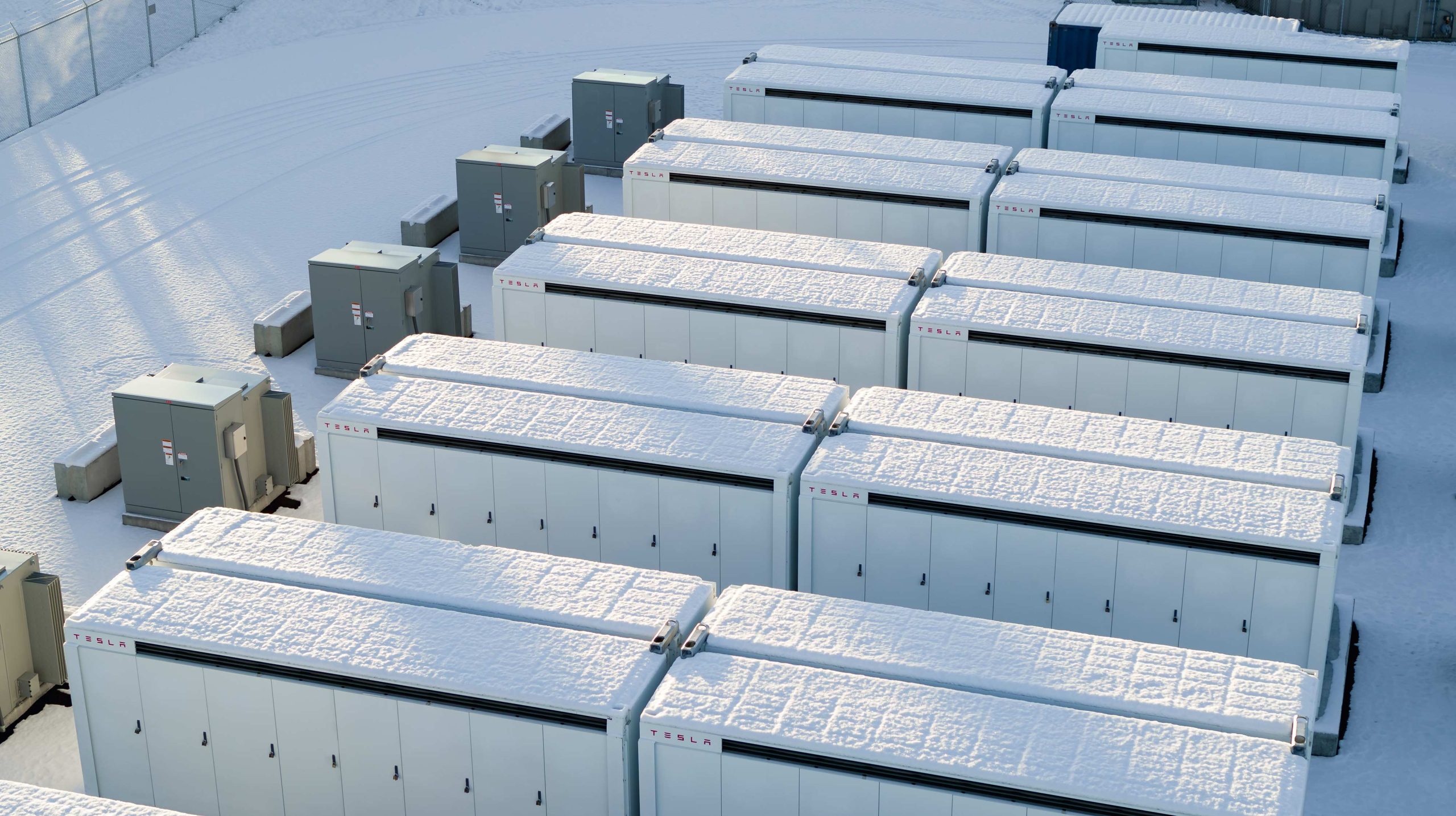
Tesla Energy recently celebrated its 10th anniversary with a dedicated video showcasing several of its milestones over the past decade.
Tesla Energy has gone far since its early days, and it is now becoming a progressively bigger part of the company.
Tesla Energy Early Days
When Elon Musk launched Tesla Energy in 2015, he noted that the business is a fundamental transformation of how the world works. To start, Tesla Energy offered the Powerwall, a 7 kWh/10 kWh home battery system, and the Powerpack, a grid-capable 100 kWh battery block that is designed for scalability. A few days after the products’ launch, Musk noted that Tesla had received 38,000 reservations for the Powerwall and 2,500 reservations for the Powerpack.
Tesla Energy’s beginnings would herald its quiet growth, with the company later announcing products like the Solar Roof tile, which is yet to be ramped, and the successor to the Powerwall, the 13.5 kWh Powerwall 2. In recent years, Tesla Energy also launched its Powerwall 3 home battery and the massive Megapack, a 3.9 MWh monster of a battery unit that has become the backbone for energy storage systems across the globe.
Key Milestones
As noted by Tesla Energy in its recent video, it has now established facilities that allow the company to manufacture 20,000 units of the Megapack every year, which should help grow the 23 GWh worth of Megapacks that have already been deployed globally.
The Powerwall remains a desirable home battery as well, with more than 850,000 units installed worldwide. These translate to 12 GWh of residential entry storage delivered to date. Just like the Megapack, Tesla is also ramping its production of the Powerwall, allowing the division to grow even more.
Tesla Energy’s Role
While Tesla Energy does not catch as much headlines as the company’s electric vehicle businesses, its contributions to the company’s bottom line have been growing. In the first quarter of 2025 alone, Tesla Energy deployed 10.4 GWh of energy storage products. Powerwall deployments also crossed 1 GWh in one quarter for the first time. As per Tesla in its Q1 2025 Update Letter, the gross margin for the Energy division has improved sequentially as well.
-

 Elon Musk1 day ago
Elon Musk1 day agoTesla investors will be shocked by Jim Cramer’s latest assessment
-

 News6 days ago
News6 days agoTesla Robotaxi’s biggest challenge seems to be this one thing
-

 News2 weeks ago
News2 weeks agoTesla’s Grok integration will be more realistic with this cool feature
-

 Elon Musk2 weeks ago
Elon Musk2 weeks agoElon Musk slams Bloomberg’s shocking xAI cash burn claims
-

 News2 weeks ago
News2 weeks agoTesla China roars back with highest vehicle registrations this Q2 so far
-

 News2 weeks ago
News2 weeks agoTexas lawmakers urge Tesla to delay Austin robotaxi launch to September
-

 News2 weeks ago
News2 weeks agoTesla dominates Cars.com’s Made in America Index with clean sweep
-

 Elon Musk1 week ago
Elon Musk1 week agoFirst Look at Tesla’s Robotaxi App: features, design, and more










